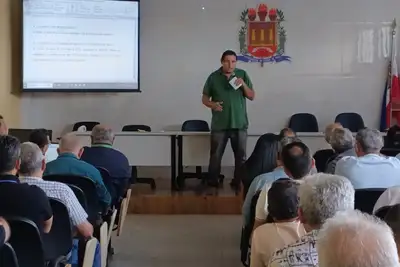Metropolitan Polyclinic alerts about the importance of blood donation for the treatment of sickle cell diseases
Patient needs to undergo transfusions constantly, or even a bone marrow transplant
Following its commitment to alert the population about health care, the Metropolitan Polyclinic of Pará, in Belém, reinforces, this June, the awareness about sickle cell diseases. They are genetic and hereditary and require attention for the rest of life. The specialist at Poli also notes the relevance of blood donation, essential for the continuous treatment of patients.
Sickle cell diseases are identified in the first days of life through the heel prick test and confirmed by the hemoglobin electrophoresis test, which aims to identify the different types of hemoglobin that may be found circulating in the blood.
Hematologist Ana Virgínia Van Den Berg, coordinator of the service at the Metropolitan Polyclinic, explains that in the case of sickle hemoglobin, it has a quantity of hemoglobin S of 50% or more. “At the Polyclinic, we monitor these patients, but the reference center in Belém is Hemopa, which offers transfusions and medication called Hydroxyurea,” she emphasized.
The specialist further explains that these diseases are “hereditary and detected by the heel prick test and confirmed by a test that shows a different hemoglobin, called S (HbS), characterized by having a low oxygen content. And it looks different, what we call a crescent shape, which prevents oxygen from being delivered to all organs.”
Ana Virgínia also emphasizes the importance of early detection and alerting families with a history of the disease. “The warning sign is to know if the child has anemia, investigate this anemia, and research a suggestive history of parents or relatives who have sickle cell anemia,” she highlights.
It is also important to observe if the child has complaints of pain in the bones, feet, and hands, and in older age, to present abnormal development accompanied by anemia.
“This type of anemia is called hemolytic, as there is destruction of blood cells. They have a shorter lifespan than normal due to this destruction of red blood cells, and therefore, it is necessary to undergo a blood transfusion every two to three months,” emphasized the specialist.
Treatments - Despite the challenges, there are treatments available. “The hematologist can control it, and today we already have treatment, including definitive correction of this hemoglobin through bone marrow transplant,” observes Ana Virgínia.
Service - Per month, the Metropolitan Polyclinic performs about 250 consultations in the hematology service, attending patients from the Metropolitan Region of Belém and other municipalities in Pará, upon referral from primary care. “They are referred; however, it is not a spontaneous demand. Those who can be treated at the unit remain, and those who cannot are referred to the reference centers,” explains the coordinator.
In addition, the unit works on screening patients with malignant blood diseases, such as leukemias, lymphomas, and myeloma, and follows cases of hereditary anemias, such as sickle cell, thalassemias, and G6PD deficiency. “We also attend to patients who need monitoring of blood transfusions,” details Ana Virgínia.
The Metropolitan Polyclinic is managed by the Social and Environmental Institute of the Amazon (ISSAA), in partnership with the State Department of Public Health (Sespa).
The services are free, and consultations must be scheduled through State Regulation. For follow-up or scheduling of exams, appointments are made through the Relationship Center, via WhatsApp Business at (91) 98521-5110 or by email: agendamento.polimetropolitana@issaa.org.br.
Date - June 19 is World Sickle Cell Disease Awareness Day. The date was created by the United Nations in 2008 as a way to draw attention to the disease, which is genetic, hereditary, and characterized by changes in the blood – red blood cells become rigid, take on a sickle shape, making it difficult for oxygen to pass to the brain, lungs, kidneys, and other organs.










